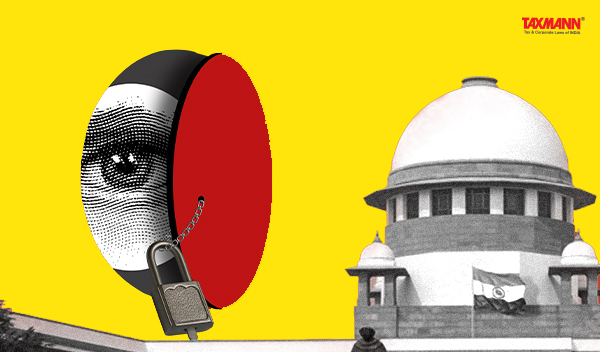HC Denies Bail to a PMLA Accused for Projecting Crime Proceeds as Untainted and Making Huge Cash Deposits
- News|Blog|FEMA & Banking|
- 2 Min Read
- By Taxmann
- |
- Last Updated on 18 September, 2024

Case Details: Satheesh Kumar P. v. Assistant Director, Directorate of Enforcement - [2024] 166 taxmann.com 361 (HC-Kerala)
Judiciary and Counsel Details
- C.S. Dias, J
- R. Anil, Adv. B. Raman Pillai, Sr. Adv., Sujesh Menon V.B., Thomas Sabu Vadakekut, Mahesh Bhanu S., Ressil Lonan, Joel George Kampiyil, Advs. for the Petitioner.
- L. Sundareshan, ASG, Jaishankar V. Nair, SC for the Respondent.
Facts of the Case
In the instant case, the petitioner was arrested in connection with a massive loan scam from 2014 to 2020, where bank officials disbursed multiple illegal loans, accepting the same property as collateral.
The accused had also manipulated records and software to fraudulently secure the loans, misappropriating Rs. 100 crores from the bank. The petitioner- accused no.14, accused of influencing bank officials and profiting from these illegal loans, filed an instant bail petition, claiming no involvement and accusing the investigative agency of coercion.
However, investigations revealed that the petitioner had received large sums of money, maintained 44 bank accounts, and had ties with influential figures.
It was alleged that the petitioner influenced the bank and got loans sanctioned to one KP, out of which the petitioner took Rs. 14 crores. Further, the power of the Court to grant bail to a person accused of an offence under PMLA is not only subject to limitations imposed under section 439 of the Code of Criminal Procedure, 1973, but also subject to rigour imposed by twin conditions under sub-section (1) of section 45.
High Court Held
The High Court noted that since the petitioner had raised a specific ground that written grounds of arrest were not served on him and since the Authorised Officer had specifically recorded that he had reason to believe that the petitioner was guilty of an offence under PMLA, the contention of the petitioner that written grounds of arrest were not served on him was untenable.
The High Court held that there were no reasonable grounds for believing that the petitioner was not guilty of the offences alleged and that he was not likely to commit offences if he was enlarged on bail. Thus, based on the serious nature, gravity, and severity of the accusations levelled against the petitioner, he was not entitled to be released on bail. Accordingly, the bail application was to be dismissed.
List of Cases Reviewed
- Manish Sisodia v. Directorate of Enforcement [2024 INSC 595] (para 22) distinguished.
List of Cases Referred to
- Nimmagadda Prasad v. CBI (2013) 7 SCC 466 (para 8)
- Y.S. Jagan Mohan Reddy v. CBI (2013) 7 SCC 439 (para 8)
- Gautam Kundu v. Directorate of Enforcement (2015) 16 SCC 1 (para 8)
- Rohit Tandon v. Directorate of Enforcement (2018) 11 SCC 46 (para 8)
- Y.S Jagan Mohan Reddy v. CBI (2013) 7 SCC 439 (para 16)
- Himanshu Chandravadan Desai v. State of Gujarat (2005) 13 SCC 234 (para 23).
Disclaimer: The content/information published on the website is only for general information of the user and shall not be construed as legal advice. While the Taxmann has exercised reasonable efforts to ensure the veracity of information/content published, Taxmann shall be under no liability in any manner whatsoever for incorrect information, if any.

Taxmann Publications has a dedicated in-house Research & Editorial Team. This team consists of a team of Chartered Accountants, Company Secretaries, and Lawyers. This team works under the guidance and supervision of editor-in-chief Mr Rakesh Bhargava.
The Research and Editorial Team is responsible for developing reliable and accurate content for the readers. The team follows the six-sigma approach to achieve the benchmark of zero error in its publications and research platforms. The team ensures that the following publication guidelines are thoroughly followed while developing the content:
- The statutory material is obtained only from the authorized and reliable sources
- All the latest developments in the judicial and legislative fields are covered
- Prepare the analytical write-ups on current, controversial, and important issues to help the readers to understand the concept and its implications
- Every content published by Taxmann is complete, accurate and lucid
- All evidence-based statements are supported with proper reference to Section, Circular No., Notification No. or citations
- The golden rules of grammar, style and consistency are thoroughly followed
- Font and size that’s easy to read and remain consistent across all imprint and digital publications are applied



 CA | CS | CMA
CA | CS | CMA
